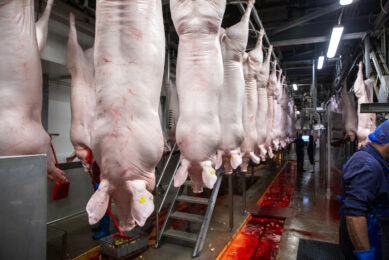Horse antitoxins successful against C. difficile in piglets

Administration to newborn pigs of equine-origin Clostridium difficile antitoxin has yielded optimistic results, report researchers at Iowa State University, in Ames, IA.
In a trial with 36 piglets, the animals received the antitoxin orally or in the peritoneal cavity, after which they were inoculated with a swine-origin C. difficile field isolate, four hours later. This resulted in lower histopathology scores 72 hours post-challenge than in pigs receiving no antitoxin.
In a paper, which appeared in the Journal of Swine Health and Production, researchers Alejandro Ramirez and others write that in the last ten years, Clostridium difficile has been implicated as a major cause of neonatal diarrhoea in pigs.
Clostridium difficile infection typically affects piglets ranging in age from one to seven days. Clinical signs of CDI include diarrhoea, abdominal distention, and scrotal oedema. The prevalence of C. difficile is widespread in the US and has been referred to as the most important uncontrolled cause of neonatal diarrhoea in the pig.
The objective of this pilot study was to investigate if administration of an equine-origin antitoxin would serve as a beneficial intervention in minimising the clinical and histologic effects in neonatal pigs infected with C. difficile.











